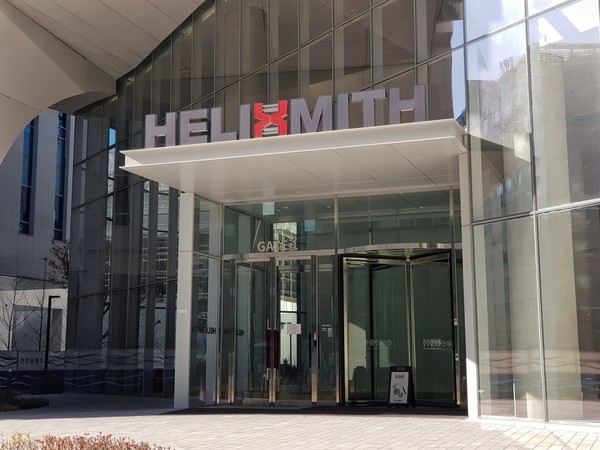Shares of Helixmith plunged Friday after the biotech firm announced that CanariaBio M will acquire the company.

According to Helixmith on Thursday, the company agreed to transfer management rights to CanariaBio M, the parent company of CanariaBio.
CanariaBio M has decided to pay 35 billion won ($27.2 million) for 2,971,137 shares of Helixmith issued through a third-party allotment.
When the transaction is completed, CanariaBio M will secure a 7.3 percent stake in Helixmith and become the largest shareholder of the latter.
After the transaction, the founder and current CEO of Helixmith, Kim Sun-young, will remain the second-largest shareholder with a 6.73 percent stake in the company with affiliated persons’ stakes combined.
Industry officials and shareholders are questioning why CEO Kim handed the management rights and the largest shareholder position for such a low price.
Notably, the company is about three months before announcing the results of the most recent phase 3 trial of Engensis, a diabetic peripheral neuropathy (DPN) treatment, which it had stressed on numerous occasions will be a huge success and a turning point for the company.
"CEO Kim had repeatedly said that the value of Engensis is over 10 trillion at every IR briefing or shareholders meeting," a shareholder told Korea Biomedical Review. "However, he sold the company for a fraction of the price, which means that he either lied to shareholders in the first place or the phase 3 Engensis trial results will be a huge failure."
Shareholders are also questioning why Kim sold the company at such a low price as Helixmith has more than 50 billion won in real estate and financial assets even when excluding pipelines, according to the third quarter audit report.
Industry officials are also disappointed by Kim's decision.
"It is well known that Kim had a very strong will to exit the company," an industry official told Korea Biomedical Review. "CEO Kim, who was once praised as a pioneer in the industry, is running away after failing to keep any of the promises he made this year, which are the completion of clinical trials and the recovery of stock prices."
Investors seemed disappointed with CanariaBio M's acquisition of Helixmith.
Helixmith's stock price stood at 11,000 won as of 2:30 p.m. Friday, down 18.8 percent from when the company announced the acquisition on Thursday.
Helixmith started as an on-campus venture by former Seoul National University professor Kim in 1996. After receiving recognition for its potential as a gene delivery system therapeutic gene and protein technology, the company became the first company to go public on the Kosdaq market through the special technology listing system in 2005.
In 2019, Helixmith's market capitalization exceeded 4 trillion won, making it the second largest company in the Kosdaq market based on market cap at that time, and it became a representative biopharmaceutical company in Korea.
However, the company's reputation and the stock price started to go downhill after it failed to make conclusions due to data contamination in its gene therapy Engensis, also known as VM202-DPN, in treating diabetic peripheral neuropathy (DPN) in 2019.
The company saw an additional setback when it unveiled that it had invested about 264.3 billion won in high-risk, high-return financial alternative assets since 2016 and lost part of the money in 2020, enraging the already disgruntled shareholders. The investment into insolvent funds raised concerns about the Korea Exchange (KRX) designating the company as an administrative issue.
As a result of such negative news, the company's stock price began to plummet, and its shares, which once rose to 350,000 won, plummeted below 20,000 won.
The company received further criticism after it proceeded with an additional paid-in capital increase to resolve the possible administrative issue designation, reversing its previous pledge that there would be no capital increase in 2020.
During that time, CEO Kim faced severe backlash from shareholders as he did not participate in the paid-in capital increase even though he was largely responsible for the drop in stock prices due to investment losses in alternative financial assets.
Kim said he could not participate in the capital increase due to the interest burden of his stock mortgage loans.
To resolve the dispute between the minority shareholders and the company, CEO Kim promised to donate all of his stocks if the company did not announce a successful clinical result of Engensis or raise the share price of the company's stock to 100,000 won by October of this year.
However, the fight with minority shareholders, who did not believe in CEO Kim's promise, intensified, and in June of last year and April of this year, the company was involved in a dispute over management rights with the retail investors.
During the most recent conflict with shareholders, CEO Kim was once again embroiled in a controversy over lying, saying that the promise of donating his stocks was invalid due to some minority shareholders' attempts to take over the company's management rights.

